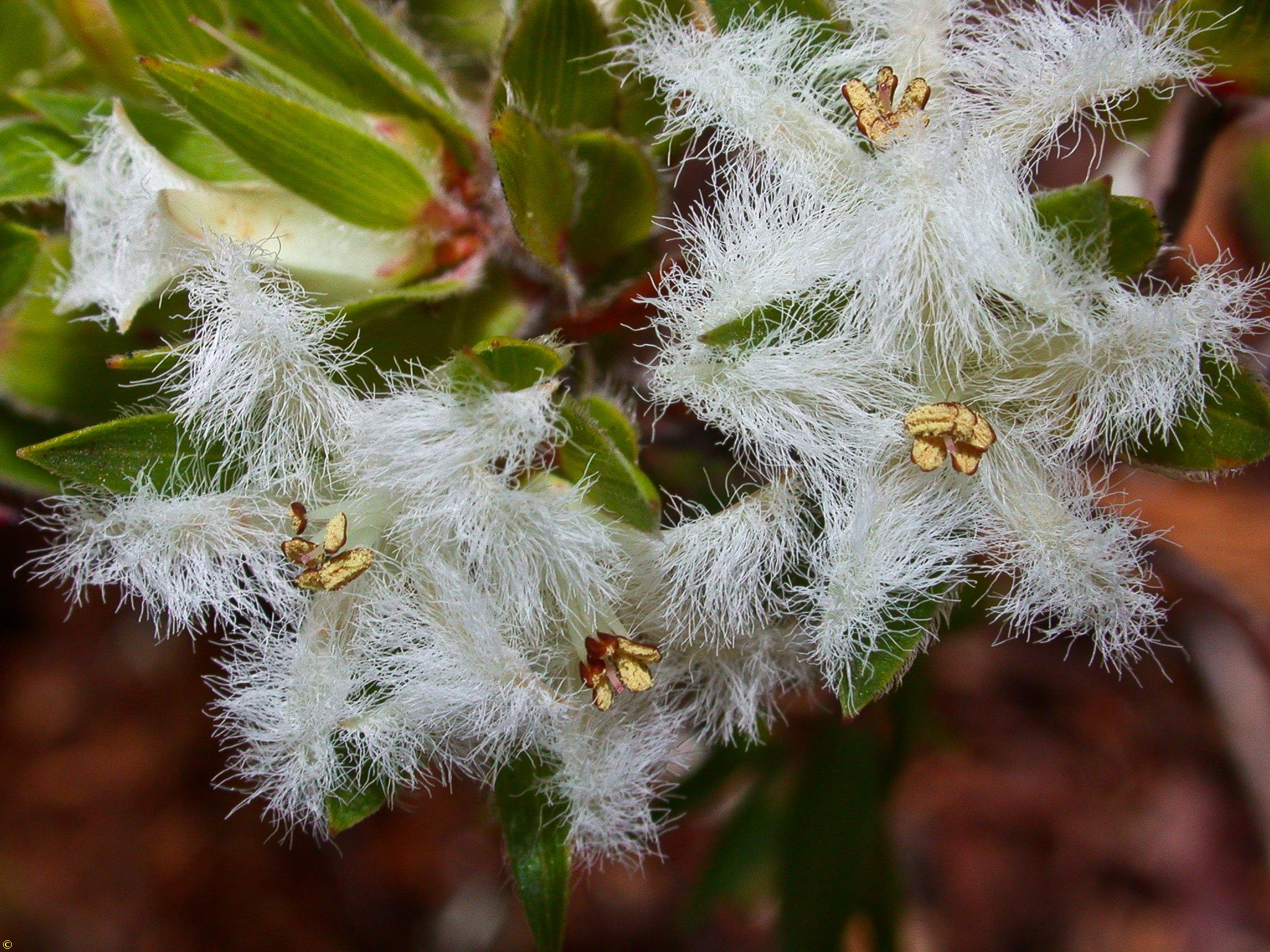Scientific Name: Pentachondra involucrata Endemic Having a natural distribution confined to a particular geographic region
Common Name: forest frillyheath
Family Classification (Clade): Eudicots
Family: Ericaceae
Form Description: Small shrub with hairy branches which may be erect or prostrate.
Height (m): 0.1 – 1
Flowers: Large, white and hairy, in groups of 1-3 near the ends of branches.
Fruit: Drupe – tiny, hidden in the persistent base of the sepals.
Municipality
Plant Communities
Habitat Notes
A sub-alpine plant on kunanyi/Mt. Wellington, locally abundant. Also found on acid moors in the Upper Huon Valley and on the east coast at Eaglehawk Neck, Swanport and Schouten Island and in the extreme south at Whale Head.
Site Tolerance
Moist, Shady
Soil Tolerance
Loam, Nutrient-poor, Poorly-drained, Well-drained
Frost Tolerance
Hardy
Propagation Calendar
-
Flowering Month
Jan Feb Mar Apr May Jun Jul Aug Sep Oct Nov Dec -
Seed Collecting Month
Jan Feb Mar Apr May Jun Jul Aug Sep Oct Nov Dec -
Sowing Month
Jan Feb Mar Apr May Jun Jul Aug Sep Oct Nov Dec -
Cutting Month
Jan Feb Mar Apr May Jun Jul Aug Sep Oct Nov Dec
Propagation Method
Seed Information
Seed Treatment Method
Fermentation Collect fleshy fruits in a plastic bag, mash up and allowed to ferment to replicate digestion by a bird.
Seed Treatment Notes
Difficult to propagate from seed. Seeds are said to germinate better after passing through a bird.
Cutting & Division Information
Cuttings may be struck with some difficulty. Particular care should be taken when handling because they develop long, fine roots. A well-composted soil is essential and care should be taken not to let plants dry out.
